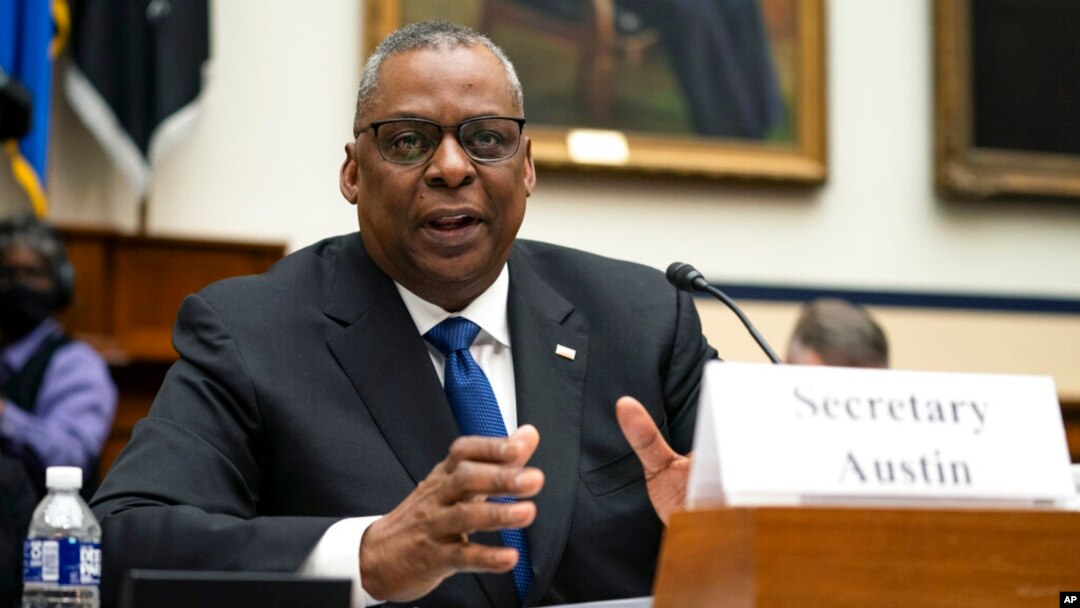The Pentagon says U.S. Defense Secretary Lloyd Austin had a phone conversation with his Chinese counterpart Wednesday, the first such contact between the two defense chiefs since President Joe Biden took office.
In a statement, Pentagon press secretary John Kirby said Austin spoke with Republic of China National Defense Minister General Wei Fenghe as a follow-up to the recent call between Biden and Chinese President Xi Jinping.
“Secretary Austin and General Wei discussed U.S.-PRC defense relations, regional security issues and Russia’s unprovoked invasion of Ukraine,” the Pentagon statement said, referring to the People’s Republic of China.
A senior defense department official, speaking on background, told reporters that Austin had no expectations of a major breakthrough on key issues with Wei during the roughly 45-minute call. The official said the two spoke on a secure telephone link that was established in 2008 by the Pentagon and China's Ministry of National Defense.
Both Austin and Biden have been outspoken critics of China’s policies since Biden took office. Both have repeatedly criticized China for military provocations against Taiwan, and Biden has accused Beijing of human rights abuses against ethnic minorities and efforts to squelch pro-democracy advocates in Hong Kong.
U.S. and Australian concerns were raised about an apparent security agreement between China and the Solomon Islands. A draft of the agreement, released online, shows it includes a provision that could allow Beijing to send armed police and soldiers to the islands, as well as base its navy ships off the Solomon coast.
Australia and the United States fear Beijing would establish a military presence in the islands, located less than 2,000 kilometers from Australia. A Chinese Foreign Ministry spokesman who announced the agreement Tuesday dismissed the concerns and accused the U.S. and Australia of "deliberately exaggerating tensions.”
Some information for this report was provided by The Associated Press and Reuters.


